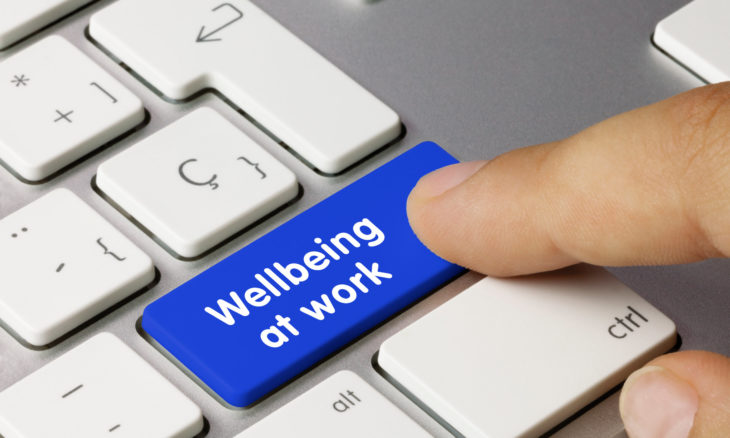Mental health in the legal sector has always been a problem due to the crushing time pressures, perfectionism, and rampant addictions plaguing attorneys and legal professionals, but it’s not often been discussed openly until recently.
I recently attended a webinar featuring several professionals from across the legal industry discussing how the culture of perfectionism and burnout has encouraged maladaptive coping techniques.
Melissa Davis, CEO of public relations agency MD Communications, Jeff Davis, Legal Counsel at the Ontario Teachers’ Pension Plan and advocate for vulnerability, Elizabeth Rimmer, CEO of LawCare and Sara Carnegie, Director of Legal Projects for the International Bar Association discussed factors impacting mental wellbeing throughout the legal industry.
Burnout Is a Universal Problem
Consistently, studies and surveys show that the burnout in the legal profession is universally felt across different regions of the world and different sectors, and results in some negative behaviors for lawyers.
In the International Bar Association’s recent mental wellbeing survey of over 3,000 legal professionals, one in three respondents reported that work has had a negative or extremely negative effect on their mental wellbeing. Even more concerning, Sara noted that the survey used respondents’ answers to calculate their average wellbeing scores on the Wellbeing Index developed by the World Health Organization (WHO). The average score was 51 (with some demographic groups scoring as low as 43), whereas the WHO recommends interventions ranging from therapy to medicine for any scores below 52.
LawCare’s Life in the Law survey of over 1,700 legal professionals throughout the United Kingdom found similar results, with those surveyed scoring an average score of 42.2 (when high burnout is considered for any score above 34.8). Elizabeth noted that part of the inspiration for their survey was to see if mental wellbeing was similarly affected in the United Kingdom as in the United States as the ABA’s survey on lawyer well-being showed.
A poll taken during the webinar echoed those survey results, with 96% responding that their work had adversely affected their mental health, leaving them feeling anxious, depressed, overwhelmed, or burned out.
Each of the panelists shared their own stories of how early in their legal careers, work impacted their wellbeing. Jeff noted that perfectionism was so bred into him during his academic career that he focused on it to his detriment early in his practice. Sara shared that when work affected her wellbeing, it impacted her coworkers as well. Elizabeth revealed that as a negligence solicitor early in her career, she found it incredibly difficult to listen to stories from victims but she didn’t know how to cope and found no guidance on how to do so: “There was never any discussion of the emotional impact this type of work can have on attorneys.”
Burnout Leads to Maladaptive Coping Techniques
Burnout, perfectionism, and stress often lead legal professionals to adopt negative and harmful coping techniques. While we know that alcoholism and other forms of substance abuse are forms of addiction that plague the legal industry, many turn to other forms of addiction or maladaptive coping techniques to conquer stress, such as a smartphone or gambling addiction to rumination, blame, and anger.
“With all of these methods, you’re using them to deal with an emotional state you’re struggling with and from which you want to distract yourself,” said Jeff. “Perhaps your boss said something that hurt you; you might use alcohol as an escape from a very difficult day. Or the next day you might endlessly scroll on your phone to distract you from the pain.” Some use food negatively to cope with stress and their emotions.
Other negative coping techniques we don’t often label as such include rumination, blame, and anger. Rumination involves continuously thinking about the same negative thoughts or incident. You use blame and anger to focus your negative energy and emotions on someone else: “It’s so much easier to cause pain to others than yourself. You’re basically transmitting your pain instead of transforming it,” said Jeff.
It’s much easier to look at someone else’s narrative on Twitter or Instagram than looking inward at yourself and how you’re feeling.
When the webinar organizers polled the audience on how many also used these types of techniques, a staggering 96% had.
There are more positive ways to cope, though they take courage. Specifically you can journal, meditate, or find other ways to practice mindfulness. It can also be as simple as just recognizing you feel a certain way, asking yourself why, and staying with it long enough to investigate it. “Start to challenge the story you’re telling yourself and ask why you are upset,” suggested Jeff. “Are you really about to get fired or die? Or did you just experience a difficult comment? Challenging our own thinking can leave us feeling much more resilient and strong coming out of the situation.”
We often take one comment from someone else and build it up into a much more powerful story based on our own insecurities; we use it to corroborate our own negative self-talk.
The Whole Industry Contributes to the Problem
The problems of perfectionism and burnout are fairly consistent throughout the legal industry and exacerbated by various segments. It starts early on, when students don’t learn anything about their emotional literacy in law school: “We’re not taught during our legal education about our emotions and how to understand them or deal with them,” said Elizabeth. “We’re trained to be rational legal thinkers, to park our emotions at the door and focus solely on reason, which makes understanding our emotions and feelings in the moment, especially when dealing with a difficult client or colleague.”
As an industry, we have a culture of working as hard as we possibly can. The practice of new lawyers working temporarily in law firms as summer associates, articling students, or on training contracts can exacerbate the impulse for perfectionism and working past the point of burnout. When senior attorneys thank junior attorneys for working through holidays, that impacts articling students or attorneys on training contracts who will think they need to do the same to secure a permanent position, even if they are burned out.
Clients are part of the problem as well, if they tolerate or encourage overwork and burnout as well. When general counsel see, or even praise, attorneys for answering emails at any time of the night, working through vacations, or checking emails while they’re spending time with their families, this leads to burned out, disengaged, unhappy attorneys who are at risk of leaving that firm or the profession altogether. Jeff tries to get to know relationship partners to talk about these important issues: “If any attorney tells me I can contact them on vacation, I challenge them. I tell them ‘If you do that, your whole team will think they have to do that too.’”
Leadership Needs to Stand up to Bullying
One of the most negative aspects drastically impacting mental wellbeing is bullying. Both the IBA and LawCares have found bullying to be a significant problem in the industry for both women and men.
Our best advice for those being bullied is to separate themselves from the situation while understanding there’s no blame for them here-it’s that person’s problem, as they’re the ones acting unprofessional. While it can be difficult for people to call out this kind of behavior, the worst result is when the organization does nothing in response. If others in a workplace know that bullying or harassment is reported but see no consequences for the perpetrator, people will assume it is tolerated and part of the firm’s culture, causing them to feel disengaged and likely to leave eventually. “People want to go into a workplace where they can operate safely, feel supported by management and trusted with autonomy,” said Sara. “We need to see leaders changing the culture from the inside.”
Leaders need to think carefully and intentionally about who they are promoting and rewarding financially and what message that sends about the norms and behaviors that make up that culture. “The theory around leadership in the industry is changing; I hope law firms aren’t the last to the game,” said Jeff. Elizabeth noted, “Firms can’t buy their way out of the mental pressures and challenges by just offering employees more money.” Clearly the webinar audience had felt the impact; when polled, 73% said if they had to do it all over again, they would not or are not sure if they would choose the legal profession again.
We are not going to attract a wide range of people to our profession, or keep them, if we don’t all do more to acknowledge the impact of pressure, stress, burnout and even bullying play on our mental wellbeing.





